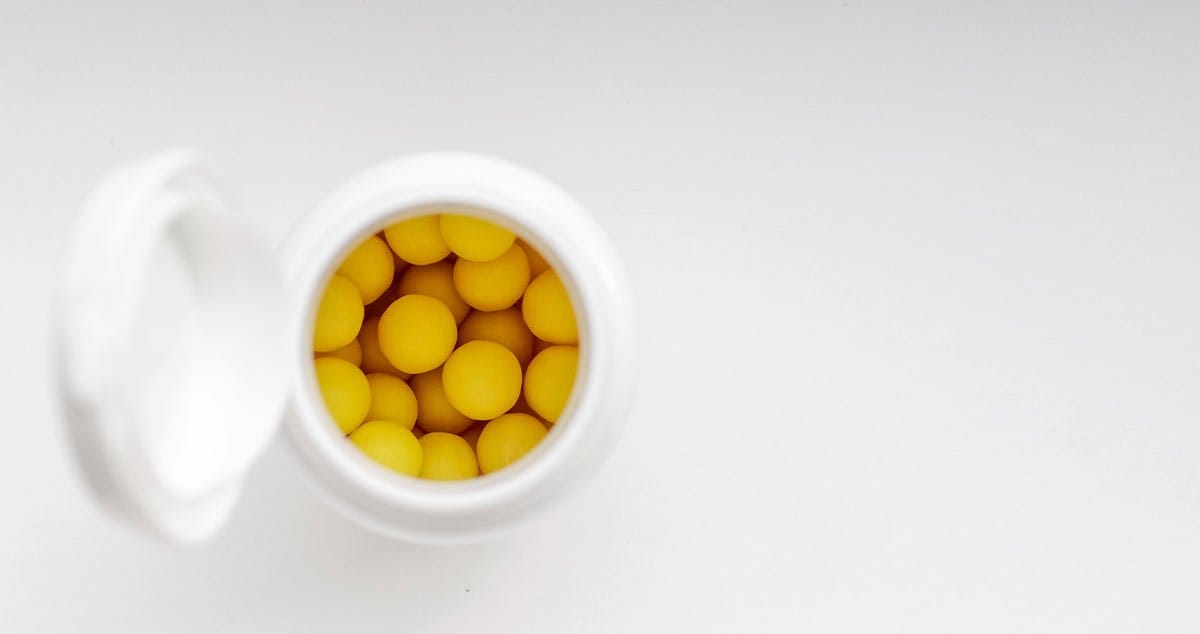If you’re reading this, then you’ve probably heard some of the nightmare stories regarding heroin withdrawal. Heroin withdrawal is commonly believed to be among the most uncomfortable of drug withdrawals, and there is a good reason that people believe this. While heroin withdrawal will rarely kill you, unlike the withdrawal from certain GABAergic drugs like benzodiazepines and alcohol, it can certainly make you feel like you’re dying. In this article, we’re going to discuss the nature of heroin withdrawal and explain just how unpleasant it can be.
Bit About Heroin Withdrawal
Withdrawal is a condition that a person experiences if they suddenly stop using a drug that’s known to be physically addictive, such as heroin. The body will have become accustomed to having heroin present. The drug, which initially leads to feelings of bliss and euphoria, eventually causes the user to develop a tolerance. As the user develops a tolerance to the drug, they begin to need more and more of it to experience the same effects that they once experienced by using small doses at the beginning of their usage. Eventually, the individual will require fairly large doses of heroin to simply feel stable. At this point, the user is dependent, meaning that they depend on heroin to feel normal and emotionally or physically stable. Usually, once a person begins to experience dependence, they are liable to experience withdrawals. Since the body has become so accustomed to having heroin inside of it, its state of homeostasis (a state of equilibrium in which the body feels balanced) will now be associated with the state of having heroin present in the body. If the body does not have heroin in it, many different systems will fall out of balance, leading to some of the unpleasant effects of heroin withdrawal. Another issue that can contribute to the emergence of withdrawal symptoms, such as shaking and anxiety, is norepinephrine (adrenaline) rebound. When you’re using heroin over a long period of time, it suppresses the body’s production of adrenaline. This is partly what contributes to the feelings of relaxation and bills that many heroin users crave. As the body becomes accustomed to heroin, it also becomes accustomed to producing minimal amounts of norepinephrine. When a user suddenly stops using heroin, there are significant increases in adrenaline in the brain. This adrenaline rebound can lead to feelings of hyperstimulation and discomfort for the days or weeks until the adrenaline system sorts itself out. You do not have to go through a heroin withdrawal alone, call Stepping Stone Center for Recovery at 866-957-7298 for help.

Influences Affecting Heroin Withdrawal
Not everyone who stops using heroin will experience the same degree of withdrawal. Several factors influence the severity and duration of the withdrawal symptoms that you’ll experience after you stop using heroin. These include:
- How long you’ve been using for. Many people can use heroin for short periods – days or weeks – without experiencing any severe withdrawal symptoms. However, the longer that you use the drug for, the more intense the withdrawal symptoms will be. Using for a more extended period means that your body will become more and more dependent on heroin and that the period of reintegration after you stop using will be much more drawn-out and difficult.
- How much you’re using. People who are using small amounts of heroin will experience much less intense withdrawal symptoms than those who are using large doses. ‘Chippers,’ as they are referred to, tend to use infrequently or to use just as much as they need to avoid withdrawal symptoms without actually getting high.
- Your method of using. There are different ways to use heroin, and each way will deliver the drug into your body in a different manner. These are the most common methods of usage:
- Injecting is, in many areas, the most popular way to use heroin. Injecting delivers 100% of the heroin directly into the bloodstream and therefore, provides the most efficient and cost-effective dose for a heroin user. Injecting also causes the duration of the high to last longer. Since such a large amount of the drug is being delivered and remaining in the blood for such a long period, the withdrawals from injection are generally the most drawn-out and intense.
- Smoking causes the drug to hit nearly as quickly as injecting it. However, it also leaves the body much quicker, and not nearly as much is absorbed compared to when an individual injects it. This leads to withdrawal symptoms that are less intense and less drawn-out than those that will be experienced by people injecting the drug.
- Insufflating (snorting). Snorting is another way that users can use heroin. Snorting causes the drug to be released slowly into the blood. The high comes on gradually, and users come down gradually. Withdrawals from snorting are generally longer in duration than those that people experience from smoking, but may not be as intense.
- Those who are getting heroin off the street will likely be getting an impure product compared to those who may get it from closer to the source. The purity will have a significant impact on the length and intensity of your withdrawal symptoms.
Heroin Withdrawal Symptoms and Timeline
Now that you understand a bit more about heroin and the factors that can influence the withdrawal symptoms, it’s time to learn about the actual symptoms themselves.
First-tier:
The first-tier withdrawal symptoms are generally experienced by individuals who have not been using heroin for very long or who use minimal doses with a method like smoking. First-tier symptoms are also likely to occur more so in an individual who has never suffered through withdrawal before. The more times an individual goes through withdrawal, the more their body is, essentially, ‘primed’ for withdrawal and the more intense symptoms will become. Common first-tier symptoms include:
- Sniffling, runny nose
- Sneezing
- Runny, watery or itchy eyes
- Constant yawning
- Anxiety, nervousness, agitation
- Temperature problems – chills or hot flashes
- Bowel problems – constipation or diarrhea
- Cravings
Second-tier:
Second-tier withdrawal symptoms will afflict someone who has been using higher doses of heroin for more extended periods. These symptoms will occur in conjunction with the first-tier symptoms, though these are noticeably more uncomfortable and one may not notice the first-tier symptoms.
- Restless leg syndrome – a feeling that you constantly need to move or shake your legs or arms
- Muscle spasms
- Depression or serious emotional issues
- Nausea, abdominal pain, cramping
- Sweating and shaking
Third-tier:
Third-tier symptoms tend to occur in individuals who have developed a serious dependency on heroin and who need the drug to function. These will occur in tandem with both second and first-tier withdrawal symptoms.
- Muscle and bone pain
- Vomiting, constant diarrhea
- Inability to eat
- Rapid weight loss
- Muscle spasms
People who are expecting to experience 2nd or 3rd tier withdrawal symptoms may want to seek medical help before attempting to undergo their withdrawal on their own. While heroin withdrawal rarely will kill you, symptoms such as chronic vomiting and inability to eat can be very dangerous for the body and cause irreversible damage. Having medical assistance to help you will also keep you from giving in to your craving.

Heroin Withdrawal Timeline
The duration that you will experience heroin withdrawal also depends on the amount of time that you’ve been using it for. Here are some general outlines:
- Light usage (chippers): Withdrawal starts within 12-24 hours of your last dosage, peaks between 1-3 days, and may be entirely gone within a week.
- Medium usage. Withdrawal will generally start between 6-24 hours after your last dosage and peak for somewhere between 1-5 days, subsiding within a week or so.
- Heavy usage. Intravenous users and those who use high dosages may experience withdrawal symptoms starting anywhere from 6-24 hours after their last dosage with an intense peak lasting from 1-5 days. Symptoms may persist for up to two weeks afterward.
These are estimations. The amount that you use, the frequency that you use, and the way that you use will all influence the duration and intensity of your withdrawal period.
Post-Acute Withdrawal Syndrome
Even after the acute withdrawal symptoms are finished, recovering heroin users are not entirely free. A condition known as post-acute withdrawal syndrome is known to affect a vast majority of heroin users. Post-acute withdrawal syndrome describes the lingering effects that persist after the main withdrawal phase is finished. Many of these effects are psychological in nature, but some may be physical.
- Many users find that they are unable to rediscover their enthusiasm for life after using heroin for an extended time.
- People who used heroin to cope with their anxiety will find that their anxiety could get much worse during withdrawal and continue to persist after.
These issues can persist for anywhere from several weeks to several years. The best way to cope with some of the psychological problems is to seek help from a licensed counselor or therapist.
In Conclusion
Heroin withdrawal is often described as being a nightmare, and there are many reasons that this rings true. The physical and psychological effects that occur when someone tries to stop using heroin suddenly can be devastating on a person’s well-being. If you or someone you know is struggling with an addiction to heroin and would like help quitting, call Stepping Stone Center for Recovery at 866-957-7298. Our treatment facilities offer a safe way to medically detox from heroin.









